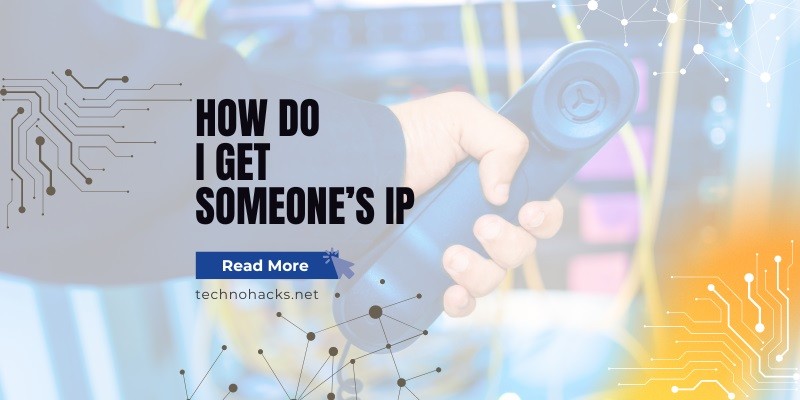How Do I Get Someone’s IP?
In today’s hyper-connected world, protecting your digital identity and personal information has never been more crucial. With cyber threats evolving rapidly, it’s essential to stay informed and proactive about your online security. This comprehensive guide will explore key cybersecurity practices to help you safeguard your digital life in 2024 and beyond.
Understanding the Importance of Cybersecurity
The digital landscape is rife with potential dangers. In 2021 alone, over 15 million individuals fell victim to identity theft, resulting in staggering losses of up to $24 billion annually. These sobering statistics underscore the critical need for robust personal cybersecurity measures.
Essential Cybersecurity Best Practices
1. Fortify Your Accounts
Create Strong, Unique Passwords
One of the simplest yet most effective ways to enhance your cybersecurity is by using strong, unique passwords for each of your online accounts. Avoid reusing passwords across multiple platforms, as this can create a domino effect if one account is compromised. Consider employing a reputable password manager to generate and securely store complex passwords for you.
Enable Multi-Factor Authentication (MFA)
Whenever possible, activate MFA for your accounts, especially those used for financial transactions or containing sensitive personal data. This additional layer of security significantly reduces the risk of unauthorized access, even if your password is compromised.
2. Secure Your Devices
Keep Software Updated
Regularly update your operating systems, web browsers, and applications to ensure you have the latest security patches. Many software updates include critical fixes for newly discovered vulnerabilities.
Install Reputable Antivirus Software
Equip your devices with trusted antivirus and anti-malware programs to protect against various cyber threats. Regularly scan your systems and keep these security tools up-to-date.
Secure Your Home Wi-Fi
Change your router’s default password and username, and create a separate network for guests. This helps prevent unauthorized access to your primary network and connected smart devices.
3. Practice Safe Browsing Habits
Be Cautious with Links and Attachments
Exercise extreme caution when clicking on links or opening attachments in unsolicited emails or messages. These are common vectors for phishing attacks and malware distribution.
Use Bookmarks for Important Sites
Create and save bookmarks for frequently visited banking and financial websites. This practice helps you avoid accidentally entering credentials on fraudulent sites designed to mimic legitimate ones.
Leverage Encrypted Messaging Apps
For sensitive communications, use end-to-end encrypted messaging apps like Signal or WhatsApp. While these apps protect message contents, be mindful that metadata can still reveal information about your interactions.
4. Protect Your Privacy Online
Minimize Personal Data Exposure
Be selective about the personal information you share online. Avoid providing unnecessary details on social media platforms or in online forms.
Review Privacy Settings
Regularly audit and adjust privacy settings on your social media accounts and other online platforms. Control what information is visible to the public and who can access your personal data.
Consider Using a VPN
A Virtual Private Network (VPN) can help hide your IP address and encrypt your internet traffic, enhancing your online privacy. This is particularly important when using public Wi-Fi networks.
5. Stay Informed and Vigilant
Educate Yourself on Cyber Threats
Stay updated on the latest cybersecurity threats and scams. Knowledge is power when it comes to recognizing and avoiding potential dangers online.
Monitor Your Accounts
Regularly review your financial statements and credit reports for any suspicious activity. Consider using a reputable credit monitoring service to alert you to potential fraudulent actions.
Be Skeptical of Unsolicited Communications
Treat unexpected emails, calls, or messages with caution, especially those requesting personal information or immediate action. Verify the sender’s identity through official channels before responding or taking any action.
Advanced Cybersecurity Measures
For those seeking an extra layer of protection, consider these advanced strategies:
Use a Dedicated Device for Sensitive Activities
Consider using a separate device exclusively for banking or investment activities. This physical separation can help isolate high-risk activities from potential threats on your primary devices.
Implement Network Segmentation
If you have multiple smart devices at home, consider creating separate network segments to isolate potentially vulnerable IoT devices from your main network.
Regularly Backup Your Data
Maintain up-to-date backups of your important files and data. This ensures you can recover your information in case of data loss, accidental deletion, or ransomware attacks.
The Role of Legislation in Cybersecurity
While individual efforts are crucial, the absence of comprehensive data privacy laws remains a significant challenge. Advocating for stronger privacy regulations by engaging with policymakers is essential for creating a more secure online environment for all users.
Conclusion
In an era where our digital and physical lives are increasingly intertwined, taking proactive steps to protect your online presence is not just advisable—it’s necessary. By implementing these cybersecurity best practices, you can significantly reduce your risk of falling victim to cyber threats and enjoy a safer, more secure digital experience.

